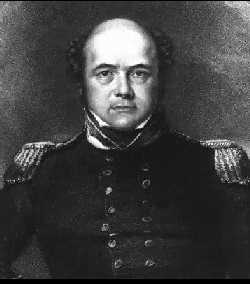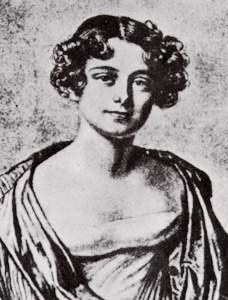
Council of Heads of Australasian Herbaria
Australian National Herbarium
Biographical Notes
 |
Council of Heads of Australasian Herbaria |
Sir John and Lady Jane Franklin actively encouraged science and education in colonial Australia.
 Sir
John Franklin (1786-1847)
Sir
John Franklin (1786-1847) Sir John Franklin was appointed Lieut-Governor of Van Diemen's Land in 1837 and moved to Hobart with his wife that year. During the politically turbulent years of his office (1837-1843) he strove to promote the development of cultural pursuits in a colony of brutalised convicts and Aborigines, and free settlers.
Sir John established a State education system, founded the Tasmanian Natural History Society (which became the first scientific Royal Society to be established outside Britain) and subsidised the Tasmanian Journal of Natural History. During his period in office, Tasmania became the intellectual hub of the Australian colonies.
Before his Tasmanian appointment he had conducted two significant polar explorations,
and he later lost his life on the greatest of his expeditions (1845-1847) to discover the N W Passage.
 Lady
Jane Franklin (1791 - 1875)
Lady
Jane Franklin (1791 - 1875)Lady Jane Franklin was one of the colony's most culturally erudite and forceful women. She was also an adventurous traveller and participated in expeditions which explored Tasmania, including one which crossed the island from Hobart to Macquarie Harbour in 1841-42.
Lady Franklin established a private botanic gardens, 'Ancanthe', at Lenah Valley, near Hobart. The garden placed special emphasis on Tasmanian native plants and included a museum of natural history modelled on a Greek temple.
Lady Franklin actively promoted scientific endeavours and strongly influenced
her husband to establish the Tasmanian Natural History Society. She was also
involved in many activities to build and promote the Van Diemen's Land colony,
including the establishment of an agricultural settlement on the Huon River
in 1839.